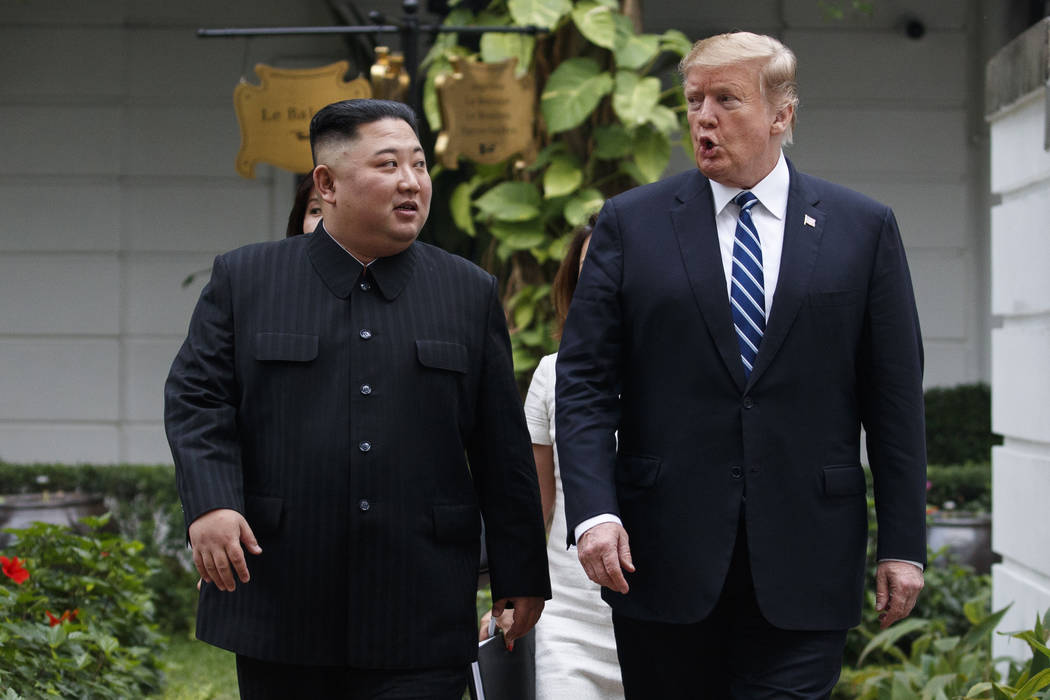N. Korea says US must drop nuke disarmament demand

SEOUL, South Korea — North Korea said Friday that nuclear negotiations with the United States will never resume unless the Trump administration moves away from what Pyongyang described as unilateral demands for disarmament.
The statement by an unnamed North Korean foreign ministry spokesman published in state media was the country’s latest expression of displeasure over the stalled negotiations as it continues to press Washington to soften its stance on enforcing sanctions against the North’s crippled economy.
It came as President Donald Trump prepares to travel to Japan this weekend for a summit with Prime Minister Shinzo Abe in which the North Korean nuclear issue will likely be high on the agenda.
In the statement carried by Pyongyang’s official Korean Central News Agency, the North Korean spokesman accused the U.S. of deliberately causing February’s collapse of talks between Trump and North Korean leader Kim Jong Un with unilateral and impossible demands.
“We hereby make it clear once again that the United States would not be able to move us even an inch with the device it is now weighing in its mind, and the further its mistrust and hostile acts toward the DPRK grow, the fiercer our reaction will be,” the statement said, referring to North Korea’s formal name, the Democratic People’s Republic of Korea.
“Unless the United States puts aside the current method of calculation and comes forward with a new method of calculation, the DPRK-U.S. dialogue will never be resumed and by extension, the prospect for resolving the nuclear issue will be much gloomy,” the statement added.
The U.S. has said the Trump-Kim talks broke down because of North Korean demands for sanctions relief in exchange for a partial surrender of its nuclear capabilities. Kim has since declared that the Trump administration has until the end of the year to come up with mutually acceptable terms for a deal.
Friday’s statement follows two separate launches of short-range missiles earlier this month, which ended a pause in North Korea’s ballistic missile launches that began in late 2017 and was seen as measured brinkmanship aimed at increasing pressure on Washington without actually causing the negotiations to collapse. The North has also strongly protested the recent U.S. seizure of a North Korean cargo ship that had been involved in banned coal exports and demanded the vessel to be immediately returned.
Following the collapse of the Trump-Kim summit, North Korea also significantly slowed the pace of its engagement with South Korea, which has been eager to improve bilateral relations and help revive discussions between Washington and Pyongyang.
South Korea earlier this week vowed to push ahead with plans to resume large-scale humanitarian aid to the North. But it’s unclear whether any aid package from South Korea would influence the behavior of North Korea, which has been demanding much bigger concessions from Seoul, such as the resumption of inter-Korean economic projects currently blocked by U.S.-led sanctions against Pyongyang.